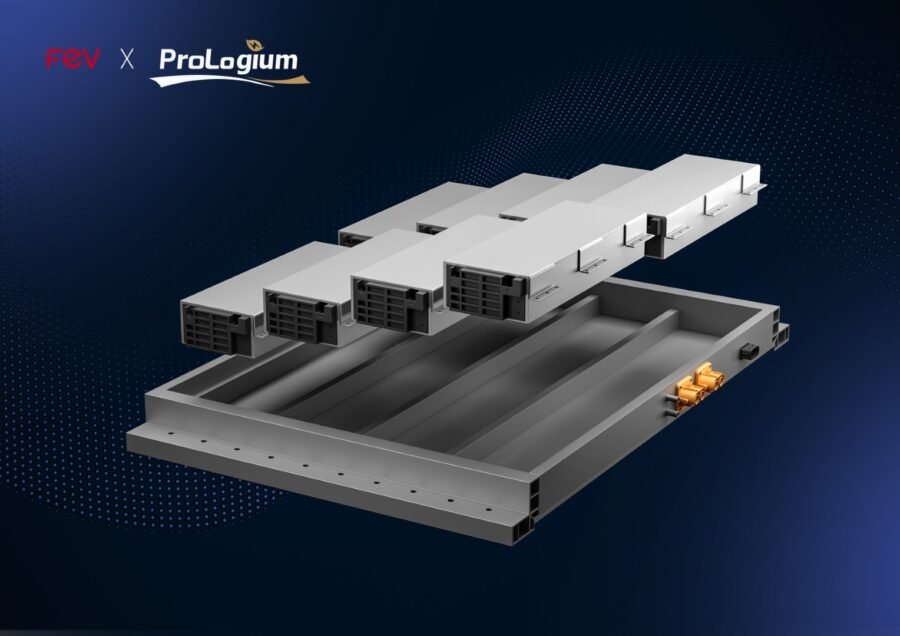German engineering service provider FEV and Taiwanese battery developer ProLogium have presented the latest generation of their Large-Footprint Lithium Ceramic Battery (LLCB). Thanks to its lightweight design and increased energy density, the new battery enables longer ranges and offers the option of ultra-fast charging, reducing charging time by more than 80 percent compared to current solutions.

All this is made possible by LLCB technology (Large-Footprint Lithium Ceramic Battery). With its anode that consists of 100 percent silicon composite material the latest generation of this battery offers a 10-times higher capacity density compared to the graphite anodes used to date. Depending on the vehicle segment and intended use, the LLCB allows weight savings of up to 300 kg or a maximum range of 1,000 km. In contrary to current liquid electrolytes, the applied solid-state electrolyte is non-flammable and increases safety against thermal runaway. It also prevents potential short circuits caused by leaking electrolyte fluid in the event of a spill.
Compared to current fast charging intervals of around 30 minutes, the silicon anode enables the ultra-fast charging process, which reduces the charging time by more than 80 percent. This means that the battery can be charged from five to 60 percent within five minutes, allowing the user to cover an average distance of 300 km. After a further three minutes, the battery is charged to 80 percent and can cover a further 100 km. In this way, the LLCB helps to bring charging times closer to the duration of a refueling process for vehicles with combustion engines.
“For the LLCB solution, we have successfully combined ProLogium´s know-how in the field of cell development with our development, system and testing expertise. Our collaboration on battery packs and concept designs focuses not only on regulatory standards, but also on market requirements. We even exceed these. The modular design of the battery also makes maintenance much easier, saves costs and allows individual cells to be replaced and recycled.”
Dr. Thomas Hülshorst, Global Vice President Electric Powertrain at FEV

